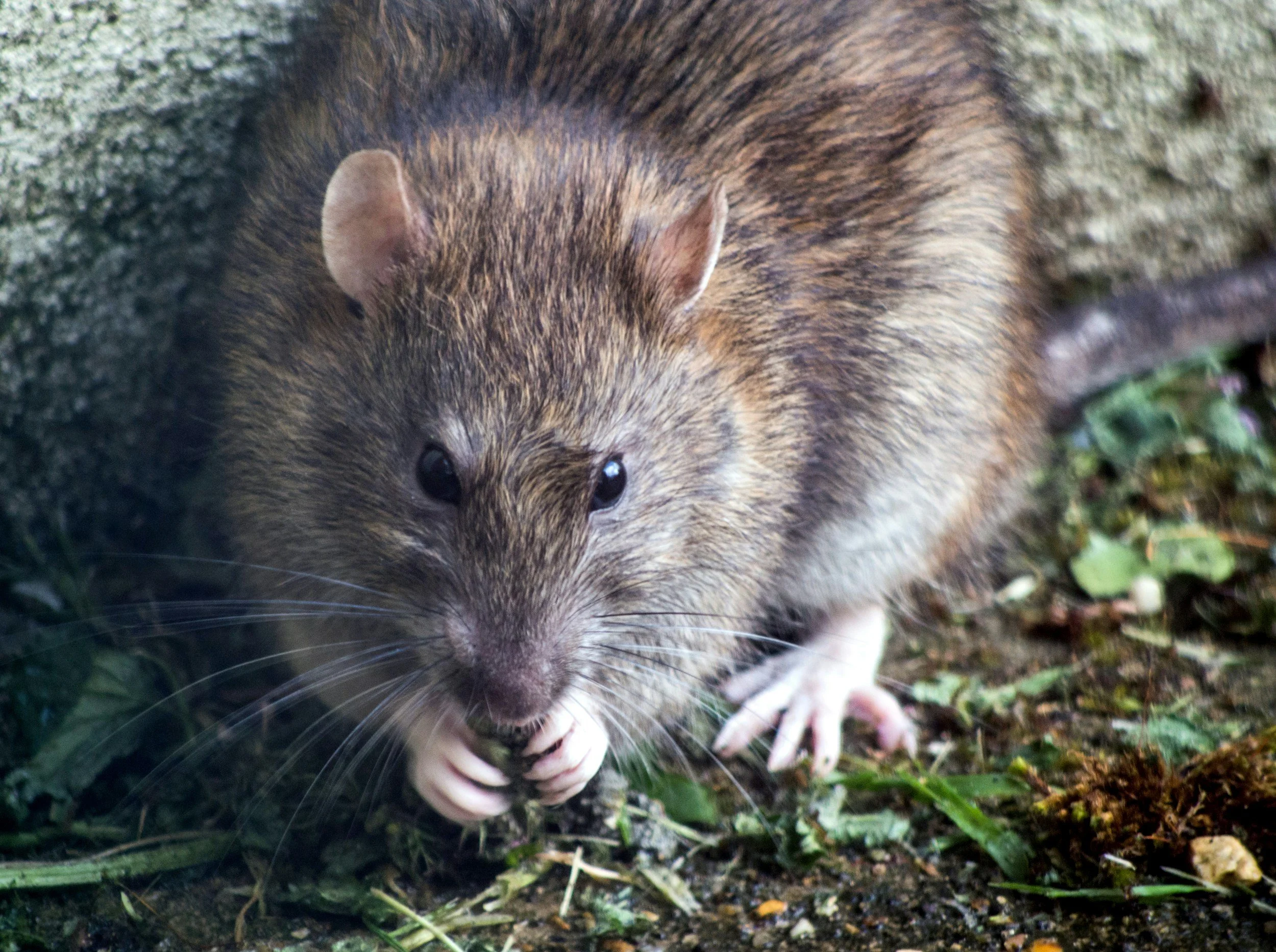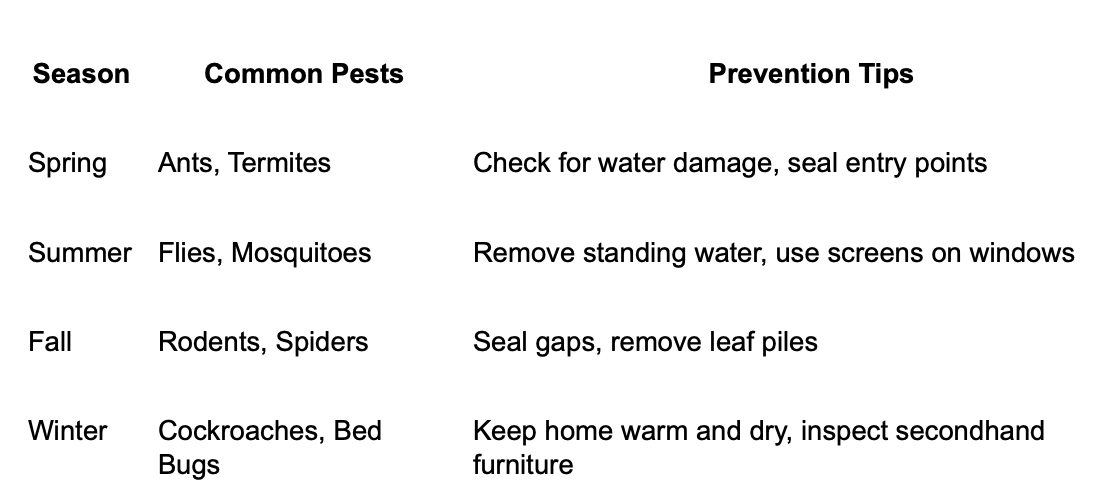Battling Bugs: The Ultimate Guide to Home Invader Prevention
In the quest for a comfortable and hygienic living space, homeowners often find themselves at odds with unwelcome guests of the six-legged variety. Pests can be more than just a nuisance; they can pose serious health risks and cause significant property damage. This comprehensive guide will equip you with the knowledge and strategies to keep your home pest-free and your family safe.
Understanding Common Household Pests
Before diving into prevention and control methods, it's crucial to familiarize yourself with the most common household pests. Knowing your enemy is the first step in developing an effective defense strategy.
Ants
These tiny invaders are perhaps the most common household pest. While they may seem harmless, ants can contaminate food and, in some species, cause structural damage.
Cockroaches
Notorious for their resilience, cockroaches are unsightly and can trigger allergies and spread diseases.
Rodents
Mice and rats can damage your home's structure and wiring and spread various diseases.
Bed Bugs
These blood-sucking insects can infest your bedding and furniture, causing itchy bites and sleepless nights.
Termites
Silent destroyers, termites can cause extensive and costly damage to the wooden structures in your home.
Prevention: Your First Line of Defense
The old adage "prevention is better than cure" especially applies to pest control. Here are some key strategies to keep pests at bay:
Seal entry points
Maintain a clean environment
Proper food storage
Reduce moisture
Regular inspections
Sealing Entry Points
Pests can enter your home through the tiniest of openings. Inspect your home's exterior thoroughly and seal any cracks or gaps. Pay special attention to areas where utilities and pipes enter your home.
Maintaining a Clean Environment
Regular cleaning is one of the most effective ways to prevent pest infestations. Vacuum frequently, wipe down surfaces, and don't let dirty dishes pile up in the sink.
Proper Food Storage
Store food in airtight containers and avoid leaving pet food out overnight. Properly dispose of garbage in sealed bins and take it out regularly.
Reducing Moisture
Many pests are attracted to damp environments. Fix leaky pipes or faucets and use dehumidifiers in damp areas like basements.
Regular Inspections
Conduct regular home inspections, paying close attention to dark, humid areas where pests are likely to hide.
Natural Pest Control Methods
For those who prefer eco-friendly solutions, there are several natural pest control methods you can try:
Diatomaceous earth for crawling insects
Essential oils like peppermint and tea tree oil as repellents
Vinegar and water solutions for ants
Bay leaves to deter pantry pests
Chemical Pest Control
When natural methods aren't enough, chemical pest control may be necessary. However, it's important to use these products safely and responsibly.
Types of Chemical Pest Control
Baits
Sprays
Foggers
Powders
Always follow the manufacturer's instructions carefully when using chemical pest control products. If you're unsure about how to use these products safely, it may be best to consult a professional.
When to Call a Professional
While many pest problems can be handled with DIY methods, there are times when it's best to call in the experts. Consider professional help if:
You have a severe or persistent infestation
You're dealing with dangerous pests like wasps or venomous spiders
You've tried DIY methods without success
You're concerned about using chemical pesticides safely
Professional pest control services have access to more powerful treatments and have the expertise to apply them safely and effectively. For instance, if you're looking for pest control Las Vegas offers numerous reputable companies that can handle even the most stubborn infestations.
The Impact of Climate on Pest Control
Climate plays a significant role in pest behavior and population. Understanding how weather affects pests can help you anticipate and prepare for potential infestations.
Integrated Pest Management (IPM)
Integrated Pest Management is a holistic approach to pest control that focuses on long-term prevention through a combination of techniques:
Biological control (using natural predators)
Habitat modification
Changes in cultural practices
Use of resistant varieties
Use of pesticides only when necessary
IPM is not only more environmentally friendly but often more effective in the long run than relying solely on chemical treatments.
The Future of Pest Control
As technology advances, so do pest control methods. Some emerging trends in pest management include:
Smart pest control devices that use AI to detect and trap pests
Pheromone-based traps for more targeted pest control
Gene drive technology to reduce pest populations
Green pesticides derived from plant extracts
While these technologies show promise, it's important to approach new methods cautiously and prioritize safety and environmental impact.
Maintaining a Pest-Free Home
Keeping your home pest-free is an ongoing process that requires vigilance and regular maintenance. Here are some final tips to help you maintain a pest-free environment:
Stay informed about common pests in your area
Keep your yard well-maintained to reduce outdoor pest populations
Educate family members about pest prevention practices
Regularly update your pest control strategies based on changing seasons and pest behaviors
Consider annual professional inspections to catch potential problems early
By combining prevention, natural methods, and professional help when needed, you can create a comfortable, pest-free living environment for you and your family. Remember, the key to effective pest control is persistence and a proactive approach.








